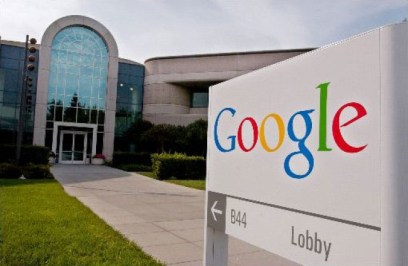 Google Inc.’s methods for recommending websites are being reviewed by Texas’ attorney general in an investigation spurred by complaints that the company has abused its power as the Internet’s dominant search engine.
Google Inc.’s methods for recommending websites are being reviewed by Texas’ attorney general in an investigation spurred by complaints that the company has abused its power as the Internet’s dominant search engine.
The antitrust inquiry disclosed by Google late Friday is just the latest sign of the intensifying scrutiny facing the company as it enters its adolescence. Since its inception in a Silicon Valley garage 12 years ago, Google has gone from a quirky startup to one of the world’s most influential businesses with annual revenue approaching $30 billion.
A spokesman for Texas Attorney General Greg Abbott confirmed the investigation, but declined further comment.
The review appears to be focused on whether Google is manipulating its search results to stifle competition.
The pecking order of those results can make or break websites because Google’s search engine processes about two-thirds of the search requests in the U.S. and handles even more volume in some parts of the world.
That dominance means a website ranking high on the first page of Google’s results will likely attract more traffic and generate more revenue, either from ads or merchandise sales.
On the flip side, being buried in the back pages of the results, or even at the bottom of the first page, can be financially devastating and, in extreme cases, has been blamed for ruining some Internet companies.
European regulators already have been investigating complaints alleging that Google has been favoring its own services in its results instead of rival websites.
Several lawsuits filed in the U.S. also have alleged Google’s search formula is biased. Google believes Abbott is the first state attorney general to open an antitrust review into the issue.
“We look forward to answering (Abbott’s) questions because we’re confident that Google operates in the best interests of our users,” Don Harrison, Google’s deputy general counsel, wrote in a Friday blog post.
Harrison said that Abbott has asked Google for information about several companies, including: Foundem, an online shopping comparison site in Britain; SourceTool, which runs an e-commerce site catering to businesses; and MyTriggers, another shopping comparison site.
All of those companies offer features that Google includes in its search engine or in other parts of its website. Foundem, SourceTool and MyTriggers have previously filed lawsuits or regulatory complaints against Google.
“Given that not every website can be at the top of the results, or even appear on the first page of our results, it’s unsurprising that some less relevant, lower quality websites will be unhappy with their ranking,” Harrison wrote.
Google says its closely guarded search formula strives to recommend websites that are most likely to satisfy the needs of each user’s request. If it didn’t keep its users happy, Google argues that people would become disgruntled and switch to other search engines offered by Yahoo Inc., Microsoft Corp. and IAC/InterActiveCorp’s Ask.com.
Regulators and lawmakers in the U.S. and Europe also have been looking into Google’s privacy practices and its acquisitions as the company tries to fortify its power.
Editors' Recommendations
- How to change theme colors in Google Slides
- How to delete a file from Google Drive on desktop and mobile
- The best resume templates for Google Docs
- How to do hanging indent on Google Docs
- How to delete Google Chrome on Windows and Mac


